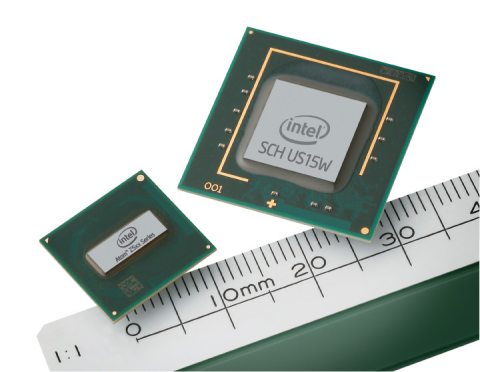The Netbooks are coming: Laptop cannibalization today; Smartphone war tomorrow?

The message out of Computex this week is loud and clear: The Netbooks are coming. Intel is touting its Atom processor. Acer is on the board with its Aspire one. Microsoft is adapting Windows to the Netbook market. Nvidia says Netbooks will be graphics intensive. The big question: Are buyers as enthusiastic as the vendors?
That question looms large--and I've raised it before. Mobile Internet devices, Netbooks, UMPCs are all based on the same thing--cheap devices that are designed to simply access the Internet, check email and provi
Also see: Gallery: Computex focuses on smaller, cheaper laptops (right)
The conundrum: Smartphones are beginning to occupy the same turf that Netbooks are targeting. Communication devices (phones) are morphing into full fledged computing devices and computing devices that are becoming communication tools. Meanwhile, both categories cost about the same. So Mr. and Ms. IT buyer what's it gonna be: Your iPhone or a Netbook? These categories are meeting in the middle and these devices will increasingly become comparable--especially as phones are used for data more than voice. Perhaps you'll buy both types of devices, but I doubt it. Can you really lug a laptop, smartphone and mobile Internet device around. Will you leave your laptop at home for something that has less computing power? How many devices--even at $399 a pop--will you choose to own?
Each answer will depend on your situation and you have some time. For now let's recap the news:
Intel's Atom processors are also now widely available and more than 100 products being built on the platform are being highlighted at Computex (Techmeme). Intel's Sean Maloney, the company's sales and marketing chief, gave the Computex keynote and said: "Individuals - not households - will drive the next era of growth with people each owning one or more computing devices."
Microsoft said Tuesday that it is extending Windows to Netbooks (statement, Techmeme), or ultra-low-cost PCs. (Can we agree on one acronym or moniker here?) Microsoft said it has 20 OEMs that are putting Windows on Netbooks--XP in most cases. Among the OEMs on board: Acer, ASUSTek Computer Inc., BenQ Corp., Dell Inc., First International Computer Inc., Gigabyte Technology Co. Ltd., HP, Inventec Corp., Lenovo, Medion AG, Micro-Star International Co., Positivo Informatica, Pegatron Corp., Quanta Computer Inc. and Wistron Corp. It should be noted that the Eee PC with XP is very popular. For Microsoft the goal is simple: Make sure these Netbooks aren't solely in the Linux camp.
And on Monday, Nvidia made it official: The company is going after the smartphone and mobile Internet device market with Tegra, what is billed as the company's high definition computer on a chip. The general idea: These Netbooks will be high definition items and that will require some graphics horsepower.
So what are we learning from all of these announcements? Here are my takeaways:
- A lot of vendors see Netbooks as a huge market and are making big bets.
- Aside from the Eee PC I haven't seen a lot of pent-up demand.
- Vendors seem to believe that Netbooks are a new category. In some respects, that's true. However, I reckon that Netbooks will cannibalize laptop sales to some degree initially before the smartphone vs. Netbook battle sets up.
- As we've learned with the MacBook Air these devices that rely on constant connections do have a few drawbacks. But hey you have to sacrifice something to hit the small and light targets.
- Price points will matter. At $399 I'm interested in one of these devices as a second laptop or something to have around the house. Above that price my interest wanes dramatically. Overall the right price to really stoke demand is probably in the $200 range.
What are your thoughts? Are you coming around to Netbooks? Salivating for one?